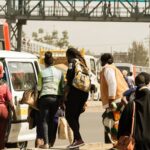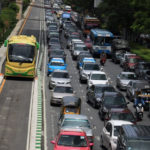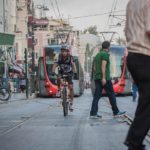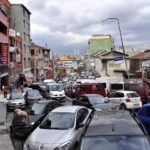Posts tagged with 'Istanbul'
In Istanbul’s Caferağa neighborhood, WRI Türkiye led a community-driven initiative to create a more sustainable, inclusive and livable urban environment. From April 2023 to July 2024, the Livable Caferağa project worked closely with residents to understand the neighborhood’s challenges around overcrowding, ...

Istanbul’s Caferağa neighborhood has a longstanding reputation for its cultural richness and historic charm. Quaint cafes, restaurants and bars line the sidewalks. A thriving arts scene draws an eclectic crowd. More than 2.3 million visitors daily flock to the district ...

2024 was tumultuous. Cities saw record-breaking temperatures, a sharp uptick in climate-related disasters, violent conflict in too many places, and contentious elections that shifted local, national and regional politics. But amidst the tumult, cities centered themselves as global leaders in ...

Europe is the world’s fastest warming continent, which is severely impacting cities and leading to tens of thousands of deaths, rising hospitalizations, school closures and people adjusting their lives to avoid inhospitable outdoor conditions. The oppressive heat is being felt across the ...

Daily commutes via car have evolved into more than mere trips – they greatly influence both our mental and physical well-being. Research shows that relentless car journeys don’t just occupy our time, they significantly shape our mood and overall outlook ...

For a woman living in an African city, public transport can be a daunting experience. Women usually plan their trips in advance, and consider a multitude of factors before setting out: What is the safest way to reach the bus ...

Although it is widely recognized that gender disparities are echoed in the design and operation of urban transportation systems, gender-responsive transportation planning is still in its early stages. Drawing from the TOPUK project, which stands for “Women Accessing Public Transport,” ...

Today’s city leaders face a level of complexity and rapid pace of change that can be overwhelming. Particularly in developing countries, urbanization is unfolding quickly and often haphazardly. One in three urban residents worldwide lack adequate access to at least ...

For decades, urban transportation policy and practitioners have favored a model of analysis that prioritizes increasing the speed of vehicles and the time saved for people as a result. While this may make sense on an intuitive level, it is ...

The COVID-19 pandemic is laying bare two unavoidable facts about our new reality: we are more interconnected than ever, and cities are at the frontlines of this crisis and will be at the frontlines of any similarly globalized crisis in ...

Some time ago, professor Christo Venter of the University of Pretoria sent me an intriguing message: Did I have data on how bus rapid transit systems, or BRTs, affect equity in cities? Impact evaluations for changes in travel time, cost, ...

Despite a slow beginning, bike share has become one of the fastest growing trends in urban transport over the past ten years. Indeed, from 2004 to 2014, the number of cities with bike share systems increased from a mere 11 ...

The United States’ urban transport mantra of “wider and more roads” dates back to the 1900s and is slowly being phased out for more compact development. However, in Turkey, the sentiment remains alive and well. To demonstrate this, consider Turkey’s ...

Motorized vehicle emissions are a primary cause of air pollution and yield some of the most adverse impacts on public health. According to the World Health Organization (WHO), exposure to heavy traffic—even living near a major road—harms health and increases ...

Growing physical inactivity at a global scale is causing more people to suffer from chronic diseases every day. According to the World Health Organization (WHO), 31 percent of adults 15 years old and older were insufficiently active in 2008, leading ...


























